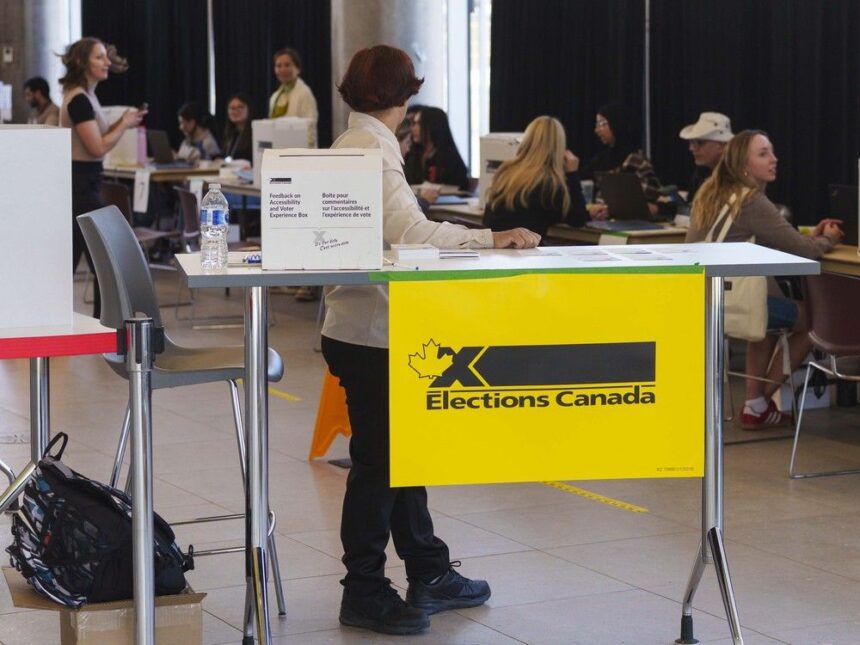The race in Calgary Confederation has tightened significantly as we enter the final stretch of the 2024 federal election campaign. What was once considered a relatively safe Conservative stronghold has evolved into a three-way contest that’s raising legitimate concerns about vote splitting among progressive voters.
I spent yesterday afternoon at a community forum in Brentwood, where the tension was palpable. Liberal candidate Dawna Ferguson and NDP hopeful Jessica Behnkie stood just meters apart, each making passionate appeals to a crowd that seemed genuinely torn about strategic voting considerations.
“Every election, we’re told to vote strategically, but when do we actually get to vote for what we believe in?” questioned Behnkie, whose campaign has gained unexpected momentum in recent weeks. Her frustration resonated with many in attendance, particularly younger voters who expressed fatigue with binary political choices.
Ferguson countered with pragmatism that clearly irritated some attendees. “History shows that when progressive votes split in this riding, Conservatives win,” she stated, referencing the 2021 results where combined Liberal-NDP votes would have overcome the Conservative margin of victory.
What makes this year’s contest particularly interesting is the absence of Len Webber, the Conservative incumbent who announced his retirement last winter. His replacement, Prasad Panda, a former provincial UCP cabinet minister, faces the challenge of maintaining Conservative support without the incumbent advantage.
Recent polling from Mainstreet Research suggests the race has tightened to within five percentage points between the three main contenders. Conservative support hovers at 32%, with Liberals at 29% and the NDP at 27% – well within the margin of error.
Calgary political analyst Lori Williams told me this reflects broader shifts in the city’s political landscape. “Calgary isn’t the Conservative monolith it once was,” Williams explained during our phone conversation yesterday. “We’re seeing neighborhoods like Capitol Hill and Mount Pleasant gradually trending more progressive with changing demographics.”
The vote-splitting anxiety is particularly pronounced in university communities and among climate-concerned voters. At the University of Calgary yesterday, student Amira Hassan expressed the dilemma directly: “I prefer the NDP platform, but I’m probably voting Liberal because I think they have a better chance of beating the Conservatives.”
This sentiment appears widespread. According to internal campaign polling shared confidentially with me by a source close to the Liberal campaign, nearly 22% of voters remain undecided, with many explicitly citing strategic voting considerations as their primary concern.
The riding’s unique demographic composition fuels this competitive dynamic. Census data shows Calgary Confederation has higher-than-average education levels, with 41% of residents holding university degrees compared to the provincial average of 26%. This typically correlates with more progressive voting patterns.
The Green Party candidate, Nathan Fraser, acknowledged the strategic voting dilemma when we spoke at a farmers market event last weekend. “I respect voters who make calculated decisions about their ballot,” he said. “But I also believe we need to fix our broken electoral system that forces these painful choices.”
Calgary Confederation was created in 2012 through redistricting, and Webber has held the seat since 2015. His consistent winning margins ranged from 5-8 percentage points – significant enough for victory but hardly overwhelming in a city where some Conservative candidates regularly win by 20+ points.
Last night’s all-candidates forum at the Triwood Community Association highlighted the policy differences driving this competitive race. Housing affordability dominated discussion, with each candidate presenting markedly different approaches.
Panda emphasized market solutions and removing regulatory barriers to construction. Ferguson focused on the Liberal national housing strategy and tenant protection measures. Behnkie advocated for more aggressive government intervention including non-market housing expansion.
The Conservative campaign appears increasingly concerned about potential vote splitting on the right as well. People’s Party candidate Marco Morrone has been drawing small but enthusiastic crowds, potentially siphoning votes from traditional Conservative supporters.
What makes this race particularly significant is its potential bellwether status. If progressive candidates can







